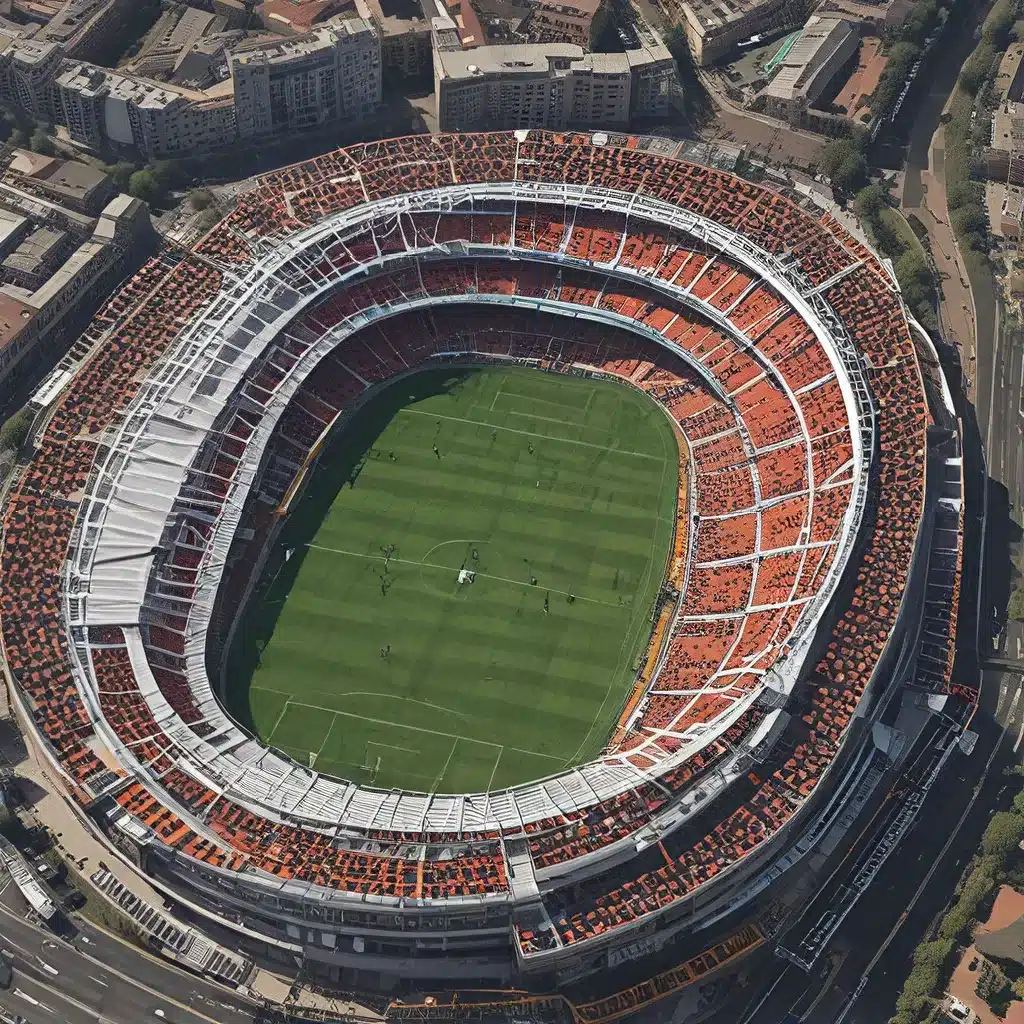
The Architectural Masterpiece of Johannesburg
FNB Stadium, also known as Soccer City, is an iconic sports venue located in Johannesburg, South Africa. This colossal structure stands as a testament to the country’s rich sporting heritage and its unwavering passion for football (soccer). Designed by the renowned architectural firm Boogertman + Partners, FNB Stadium has captured the hearts and imaginations of sports enthusiasts and design aficionados alike.
The stadium’s distinctive shape, inspired by the traditional African calabash, has become an instantly recognizable landmark in the Johannesburg skyline. The curved facade and sweeping roof create a striking silhouette that seamlessly blends with the surrounding landscape, offering a harmonious blend of modern architecture and natural elements. The use of earthy tones and locally sourced materials further reinforces the stadium’s connection to the African continent, making it a true representation of the region’s cultural identity.
Architectural renderings and virtual tours have provided a glimpse into the stadium’s remarkable design, showcasing the intricate details and innovative features that have made FNB Stadium a standout among the world’s sports facilities. From the soaring grandstand structures to the state-of-the-art lighting and audio systems, every aspect of the stadium has been carefully considered to enhance the overall fan experience.
A Storied History of Triumph and Resilience
FNB Stadium’s story is one of triumph and resilience, intricately woven into the fabric of South Africa’s eventful past. The stadium’s origins can be traced back to the 1980s, when it was initially conceived as a multi-purpose venue to host the 1995 Rugby World Cup. The project faced numerous challenges, including political unrest and economic constraints, but the determination of the South African people and the vision of its architects persevered.
The stadium’s grand unveiling in 1989 marked a significant milestone, not only for the sporting community but also for the country as a whole. As the nation embraced the spirit of unity and reconciliation, FNB Stadium became a symbol of hope and progress, embodying the resilience and determination of the South African people.
The stadium’s crowning moment came in 2010 when it served as the centerpiece of the 2010 FIFA World Cup, the first to be held on the African continent. The world watched in awe as the vibrant and passionate South African fans filled the stands, creating an unforgettable atmosphere that resonated with the global audience. The stadium’s ability to host such a prestigious event cemented its status as a true icon of African sports and a source of national pride.
A Multifaceted Venue for Sporting Excellence
FNB Stadium’s versatility extends far beyond its role as a football (soccer) venue. The stadium has played host to a diverse range of sporting events, from rugby matches to concerts, further solidifying its position as a premier destination for sports and entertainment enthusiasts.
One of the stadium’s most notable achievements is its hosting of the 2013 Africa Cup of Nations, a prestigious football tournament that showcases the best talent from across the African continent. The event was a resounding success, with the stadium’s state-of-the-art facilities and the passionate support of the local fans contributing to an unforgettable experience for players and spectators alike.
Beyond its sporting prowess, FNB Stadium has also become a hub for cultural events and musical performances. Its expansive grounds and cutting-edge infrastructure have attracted some of the world’s biggest music stars, such as Coldplay, U2, and Beyoncé, who have graced the stage with their electrifying performances. These events have not only entertained the masses but have also served as a testament to the stadium’s versatility and its ability to adapt to the ever-changing demands of the entertainment industry.
Sustainable Innovation and Community Engagement
FNB Stadium’s commitment to sustainability and community engagement is another facet that distinguishes it from other sporting venues. The stadium’s energy-efficient design, which includes the use of solar panels and water-saving technologies, has set a new benchmark for eco-friendly sports facilities. The stadium’s management team has also prioritized local community involvement, with initiatives that range from educational programs to sports development initiatives.
The stadium’s community outreach efforts have had a profound impact on the lives of local residents, many of whom have found inspiration and opportunity through the stadium’s various initiatives. From hosting sports clinics for underprivileged youth to providing employment opportunities, FNB Stadium has demonstrated its dedication to using its platform to uplift and empower the surrounding communities.
As the world continues to discover the allure of FNB Stadium, its legacy as a symbol of South African resilience and a beacon of sporting and cultural excellence is set to endure. The stadium’s ability to adapt, innovate, and engage with its community has solidified its status as a truly remarkable and multifaceted venue, one that celebrates the best of South African ingenuity and the power of sports to bring people together.

